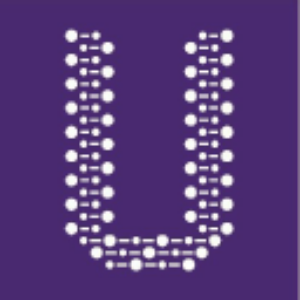Unicycive Therapeutics Announces Orphan Drug Designation Granted for UNI-494 by the U.S. Food and Drug Administration for the Prevention of Delayed Graft Function in Kidney Transplant Patients
LOS ALTOS, Calif., March 04, 2024 (GLOBE NEWSWIRE) -- Unicycive Therapeutics, Inc. (Nasdaq: UNCY), a clinical-stage biotechnology company developing therapies for patients with kidney disease (the “Company or “Unicycive”), today announced that the U.S. Food and Drug Administration has granted orphan drug designation (ODD) to UNI-494 for the prevention of Delayed Graft Function (DGF) in kidney transplant patients. UNI-494 is a cytoprotective agent that elicits an ischemic preconditioning effect by activating KATP channels in mitochondria to restore mitochondrial function.
“We are pleased to announce that the FDA has granted orphan drug designation to UNI-494 for the prevention of delayed graft function after kidney transplantation, an unmet medical need for which there are no FDA-approved drugs,” said Shalabh Gupta, MD, Chief Executive Officer of Unicycive. “Obtaining ODD is an important milestone in the development of UNI-494 that may provide certain tax credits for qualified clinical trials, exemption of user fees, and the potential for seven years of market exclusivity after approval. DGF is one of the most serious complications resulting from kidney transplantation, and we believe that the mechanism of action of UNI-494 is ideally suited for the prevention of this orphan condition.”
The FDA, through its Office of Orphan Products Development (OOPD), grants orphan drug designation to agents that have the potential to offer a safe and effective treatment, diagnosis or prevention of rare diseases that affect fewer than 200,000 individuals in the United States.
As previously announced, on March 12, 2024, Unicycive will present data on the efficacy of UNI-494 in animal models of DGF and a poster describing the ongoing Phase 1 clinical trial design for UNI-494 in healthy volunteers at the 29th International Conference on Advances in Critical Care Nephrology AKI and CRRT 2024.
About Delayed Graft Function
Delayed Graft Function (DGF) refers to the acute kidney injury (AKI) that occurs in the first week after kidney transplantation, which necessitates dialysis intervention. As the name indicates, DGF can result in sub-optimal or impaired graft function and is one of the most common and serious complications of kidney transplantation. Poor kidney function in the first week of graft life is detrimental to the longevity of the allograft. DGF is also associated with higher rates of tissue rejection and decreased patient survival. Currently, there are no FDA approved drugs for the treatment of DGF.
Ischemia/reperfusion injury (IRI) is known to be a major causative factor for the AKI that results in DGF during kidney transplantation. Ischemic preconditioning, that works by activating KATP channels in mitochondria, is a natural endogenous mechanism which protects cells from IRI in the heart, kidney, liver, and other organs. UNI-494 is a pharmacological approach that emulates and enhances this natural phenomenon of ischemic preconditioning.
About UNI-494
UNI-494 is a novel nicotinamide ester derivative and a selective ATP-sensitive mitochondrial potassium channel activator. Mitochondrial dysfunction plays a critical role in the progression of acute kidney injury and chronic kidney disease. UNI-494 has a novel mechanism of action that restores mitochondrial function and may be beneficial for the treatment of several diseases including kidney disease. Unicycive is currently conducting a Phase 1 dose-ranging safety study in healthy volunteers in the United Kingdom that is expected to complete in 2H of 2024. UNI-494 is protected by issued patent(s) in the U.S. and Europe and a wide range of patent applications worldwide.
About Unicycive Therapeutics
Unicycive Therapeutics is a biotechnology company developing novel treatments for kidney diseases. Unicycive’s lead drug candidate, oxylanthanum carbonate (OLC), is a novel investigational phosphate binding agent being developed for the treatment of hyperphosphatemia in chronic kidney disease patients on dialysis. UNI-494 is a patent-protected new chemical entity in clinical development for the treatment of conditions related to acute kidney injury. For more information, please visit Unicycive.com and follow us on LinkedIn and YouTube.
Forward-looking statements
Certain statements in this press release are forward-looking within the meaning of the Private Securities Litigation Reform Act of 1995. These statements may be identified using words such as "anticipate," "believe," "forecast," "estimated" and "intend" or other similar terms or expressions that concern Unicycive's expectations, strategy, plans or intentions. These forward-looking statements are based on Unicycive's current expectations and actual results could differ materially. There are several factors that could cause actual events to differ materially from those indicated by such forward-looking statements. These factors include, but are not limited to, clinical trials involve a lengthy and expensive process with an uncertain outcome, and results of earlier studies and trials may not be predictive of future trial results; our clinical trials may be suspended or discontinued due to unexpected side effects or other safety risks that could preclude approval of our product candidates; risks related to business interruptions, which could seriously harm our financial condition and increase our costs and expenses; dependence on key personnel; substantial competition; uncertainties of patent protection and litigation; dependence upon third parties; and risks related to failure to obtain FDA clearances or approvals and noncompliance with FDA regulations. Actual results may differ materially from those indicated by such forward-looking statements as a result of various important factors, including: the uncertainties related to market conditions and other factors described more fully in the section entitled ‘Risk Factors’ in Unicycive’s Annual Report on Form 10-K for the year ended December 31, 2022, and other periodic reports filed with the Securities and Exchange Commission. Any forward-looking statements contained in this press release speak only as of the date hereof, and Unicycive specifically disclaims any obligation to update any forward-looking statement, whether as a result of new information, future events or otherwise.
Investor Contact:
ir@unicycive.com
(650) 543-5470
SOURCE: Unicycive Therapeutics, Inc.








